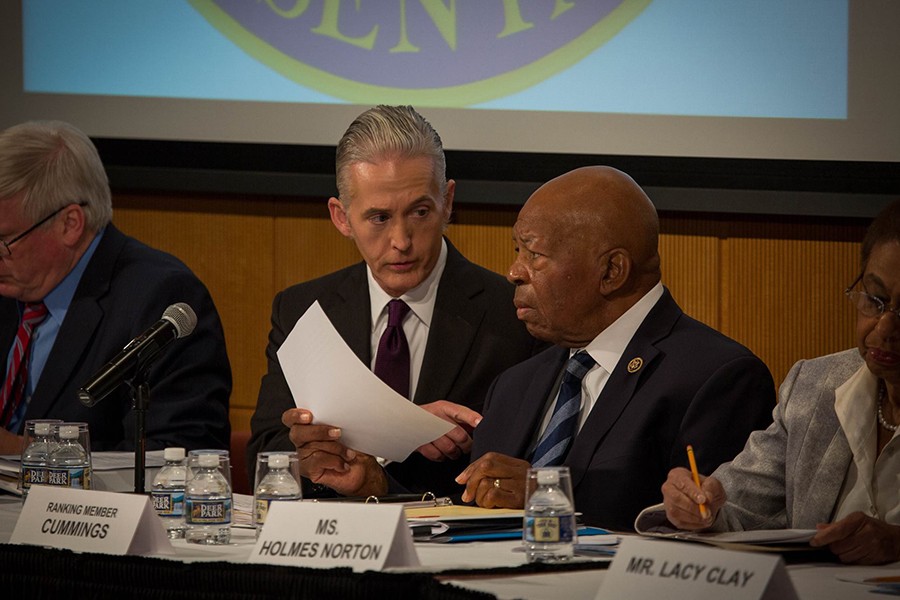There comes a point in time when every person who ultimately runs for Congress makes that decision to go all in. Maybe they have had enough with the current regime, or they have always had a goal of making a difference and being part of the government in that capacity. Whatever the case is, there’s a process to actually running for Congress and attempting to have the most success possible.
Elijah Norton Veritas Global Protection is just one person weighing their options and figuring out if they should run for Congress. He currently resides in Arizona, but there are spots open in many other states in the next year that could turn into pretty tough competitions.
Before even dreaming about making it in Congress, what goes into running (and winning)? Some of the processes are very simple, but it takes a good amount of effort to actually pull off a victory.
Eligibility
Eligibility for running for Congress is relatively straightforward. According to the constitution, anyone can run for Congress as long as they are at least 25 years old, have been a citizen for seven years or more, and live in the state they are running for. While living in the district a person is hoping to represent is not necessary, it is highly suggested to do that to drum up enough support.
After meeting the requirements, getting the name on the ballot is the next major hurdle. It is virtually impossible to win as a write-in vote, and it is also challenging not to have backing from the Democratic or Republican parties. Not only does a person need to meet filing deadlines, but getting support from their preferred party is crucial to a victory.
A Plan of Attack
No realistic campaign can be pulled off without having some type of plan to have success. That means planning out some of the biggest things like having a campaign manager and a treasurer, to smaller items like organizing volunteers and crafting a character.
Every single candidate must identify a plan early, and stay the course. Not all voters will love a candidate for obvious reasons, but a quick way to lose support is to go back and forth on a plan. When a candidate appears unstable, it kills confidence.
It’s Going to Cost
The cost to run for Congress is not cheap. While there is no finite amount of money, the bare minimum in today’s world is around $500K. More often than not, running for Congress is going to end up costing seven figures. In recent years, David Throne spent $18.4 million on his campaign to win in Maryland.
Since most running for Congress do not have that type of money to burn of their own, fundraising is a huge part of the process. One way to break down the cost is to look at it from a cost-per-vote perspective. Of course, that can range from anywhere from $2-$3 per vote, to over $100.
Being part of one of the two major parties helps with fundraising, but nailing down at least one or two major donors helps as well. The earlier, the better when starting the fundraising process.
Expecting the Unexpected
From the very beginning to election day, so many unpredictable issues are bound to come up. Adaptability on the fly is a huge key to success with any campaign. The last thing anyone wants to be forced to deal with is scrambling without any sort of sense on how to iron things out. There are certain things that just will not work out in the beginning, and that is fine. Instead of worrying about being glamorous and keeping a perfect approach, sometimes being human can be relatable to the masses.
Candidates trying always to act a certain way can seem extremely unnatural voters. Being relatable and acting like a normal human being can be extremely relatable to voters who might be on the fence. This can be a turning point for a close race at the end of the day.
Elijah Norton’s Time To Reflect
Whether a candidate wins or loses after the election is a time to reflect. Candidates have a little bit of time after everything wraps up to either plan for the next attempt or prepare to take office.
No race will be perfect, but there is a reason seasoned veterans have the advantage over first-time candidates. Learning from experience tends to reduce any missteps in the future. It is perfectly fine to step back and be critical after the fact.
Each new campaign also depends on the competition. Certain talking points might make more sense when facing off against a new opponent down the road. The overall premise is relatively the same, but reflection and change are needed each time, even if a candidate can win convincingly their very first time.

